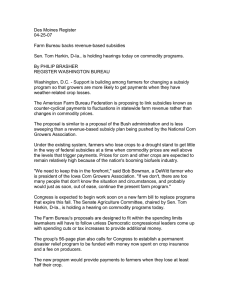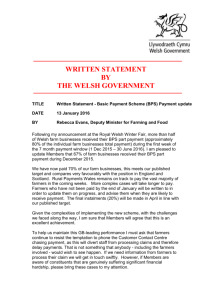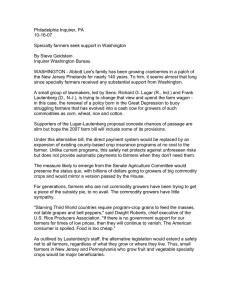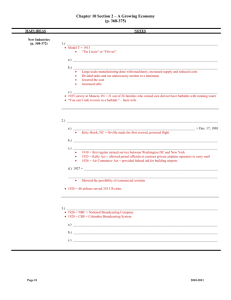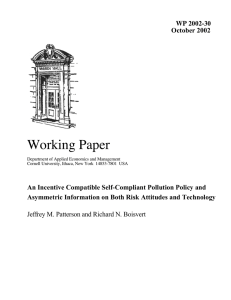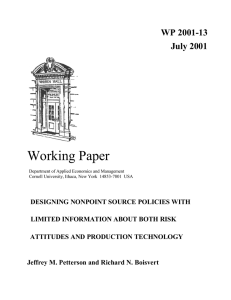Des Moines Register 10-28-07
advertisement
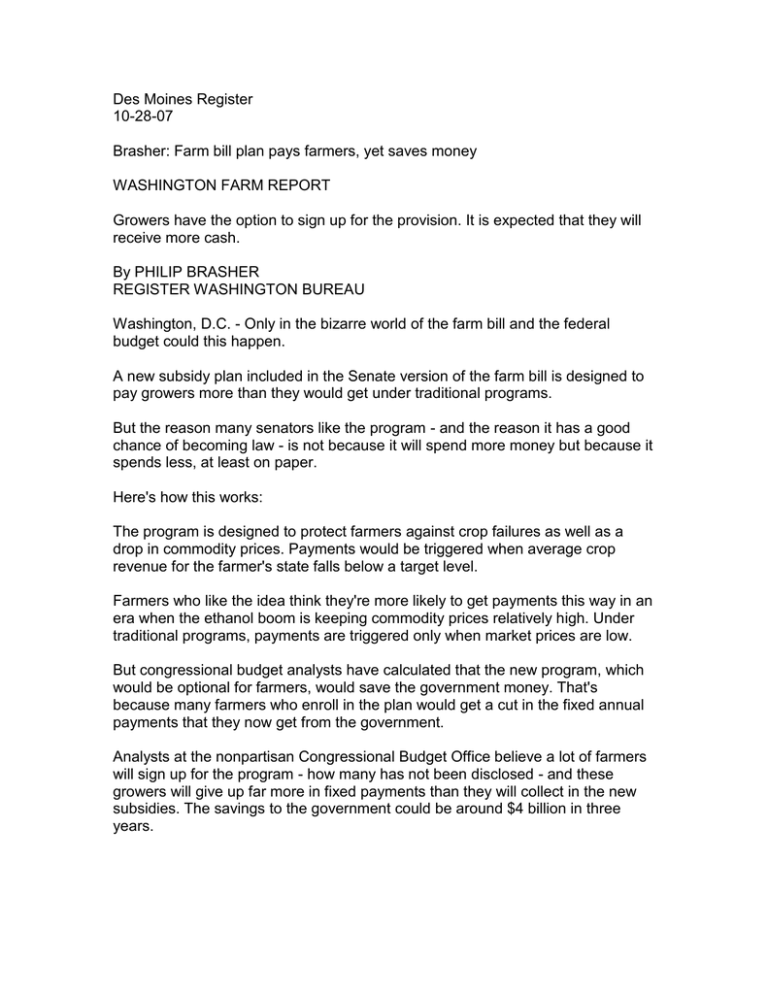
Des Moines Register 10-28-07 Brasher: Farm bill plan pays farmers, yet saves money WASHINGTON FARM REPORT Growers have the option to sign up for the provision. It is expected that they will receive more cash. By PHILIP BRASHER REGISTER WASHINGTON BUREAU Washington, D.C. - Only in the bizarre world of the farm bill and the federal budget could this happen. A new subsidy plan included in the Senate version of the farm bill is designed to pay growers more than they would get under traditional programs. But the reason many senators like the program - and the reason it has a good chance of becoming law - is not because it will spend more money but because it spends less, at least on paper. Here's how this works: The program is designed to protect farmers against crop failures as well as a drop in commodity prices. Payments would be triggered when average crop revenue for the farmer's state falls below a target level. Farmers who like the idea think they're more likely to get payments this way in an era when the ethanol boom is keeping commodity prices relatively high. Under traditional programs, payments are triggered only when market prices are low. But congressional budget analysts have calculated that the new program, which would be optional for farmers, would save the government money. That's because many farmers who enroll in the plan would get a cut in the fixed annual payments that they now get from the government. Analysts at the nonpartisan Congressional Budget Office believe a lot of farmers will sign up for the program - how many has not been disclosed - and these growers will give up far more in fixed payments than they will collect in the new subsidies. The savings to the government could be around $4 billion in three years. The chairman of the Senate Agriculture Committee, Iowa Democrat Tom Harkin, acknowledged the savings "really helped us out a great deal," although he says he believes the plan is good policy. Remember, the plan is optional. What happens if farmers don't sign up for the program in the numbers that budget analysts think will? It doesn't matter. Because of how the budget process works, it doesn't make any difference whether one or 100,000 farmers sign up for the program. As soon as the analysts issued their estimate, lawmakers were free to earmark that savings for other purposes. The Senate committee raised subsidy rates for traditional commodity programs and boosted food stamp benefits. There's a good chance many farmers won't sign up for the program, especially after the Senate committee dropped a provision to cut crop insurance premiums for Midwest farmers. The cut in fixed payments could be stiff. A corn farmer in Iowa gets a fixed payment each year of $28 an acre for land that was historically planted to corn and $13 an acre on soybeans. Under the new program, the payment would be set at $15 an acre for all crops. Farmers would have to decide that the risk of a bad year was great enough to accept that cut, said Chad Hart, an economist at Iowa State University. There's a good chance they'll get to make that decision. The savings, even if they turn out to exist on paper, are just too enticing. Welcome to Washington. Reporter Philip Brasher can be reached at (202) 906-8138 or pbrasher@dmreg.com
